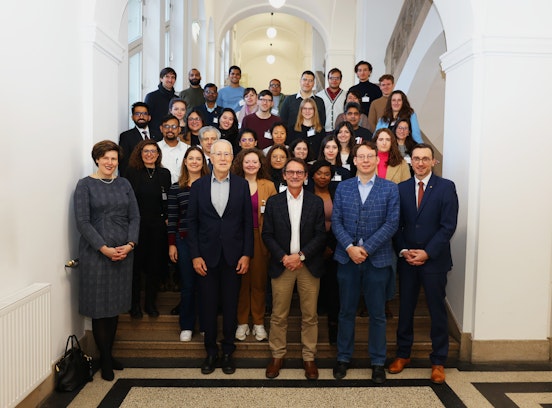Institute for Comparative Federalism - News & Events - Lebanon: is regionalism a solution?
Lebanon: is regionalism a solution?
- English
- Date: 01.06.2022, 18-19
- Place: Zoom
- Typology: Online Event
Since 2014, Lebanon has witnessed “the most severe global crises episodes” as the World Bank stated in its report of June 2021, while also declaring the ruling elite as “deliberately inactive”.
Many experts,politicians and journalists have tried to find answers to these financial, economic, and political crises, questioning the motives of why political leaders seem to be at a standstill. Most of them argue that corruption is the main driver, yet others claim the confessional system and failing sovereignty prepared the ground for this failure.
Although it is arguable that a combination of these factors could be the reason, a closer look at the foundation of the modern Lebanese state in 1920 reveals a long-neglected and clear assumption: the multicultural Lebanese society is governed by a centralized authority. But the question remains, is this the most suitable governance for such complex society?
The webinar “Lebanon: is regionalism a solution?”, jointly organized by the Eurac Research Institute for Comparative Federalism and the Lebanese Heritage Foundation, provides an opportunity to discuss the roots of the Lebanese crisis and the necessary actions needed to undertake a pathway to recovery.
Moderation
Lorenzo Somigli, Journalist and MENA analyst
Welcome and introduction
Elie Elias, University professor, USEK University, specialist in Lebanon and Middle East affairs
Speakers
Andre Sleiman, Senior Governance and Public Policy Expert; Country Representative of Democracy Reporting International (DRI) in Lebanon, focusing on electoral reform, local governance, and citizen participation
Hicham Bou Nassif, Weinberg Associate Professor of International Relations and the Middle East; George R. Roberts Fellow, Claremont McKenna College, California, Associate Professor of Government
Kerstin Wonisch, PhD researcher at the Institute for Minority Rights, Eurac Research in Bolzano/Bozen, Italy and at the University of Graz, Austria
Q&A and discussion
Conclusion
Francesco Palermo, Head of the Institute for Comparative Federalism, Eurac Research in Bolzano/Bozen, Italy, and Full Professor of comparative public law, University of Verona, Italy
Info and contact
Petra Malfertheiner Eurac Research – Institute for Comparative Federalism petra.malfertheiner@eurac.edu









